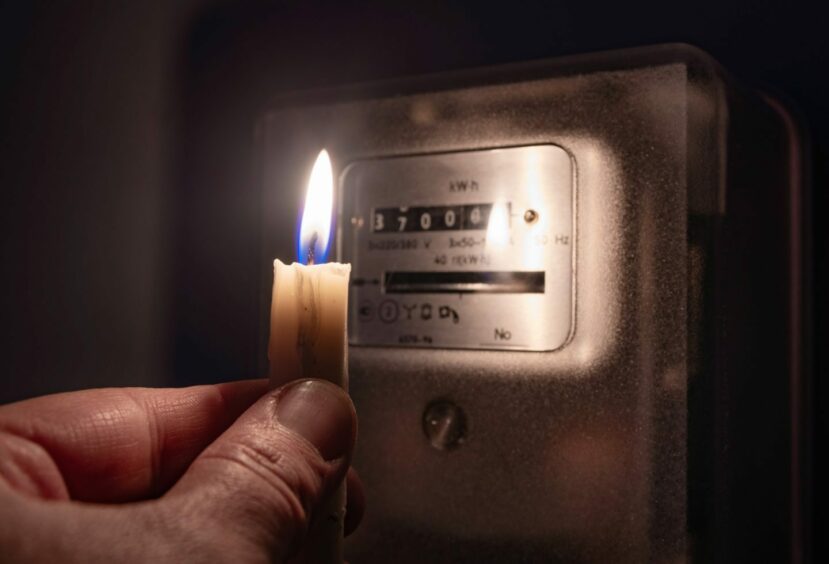
It’s a couple of months since I suggested the energy crisis would be as big as Covid and thereby demand the same scale of response. It wasn’t a very fashionable thought but perceptions have moved rapidly – everywhere, except where it matters most, in government.
The policy vacuum during that critical period represents a shameful dereliction of duty. Essentially, the whole thing has been kicked into touch until a Tory leader emerges via a ludicrously elongated process. There has been no sense of urgency about addressing the worst threat to people’s living standards in at least a generation.
Many of those waiting for answers are Tory voters, not least because this crisis will eat far beyond the impoverished margins of society, into those who thought themselves relatively secure. They have a right to indignation over a complacent refusal to acknowledge the scale of the challenge.
The most urgent need is for a freeze on energy bills. This is now signed up to by every major opposition party and some Tories. One of their MPs recently predicted “civil unrest” unless radical action is taken. “These people are going to be on the streets”, predicted Keith Hollinrake MP. “Things are going to be that bad for some households.”
Mr Hollinrake represents a comfortable English shire seat with a majority of 25,000. If he can foresee the near future in such apocalyptic terms, it seems likely many of his colleagues have the same level of awareness. A few of them must surely be in Scotland.
It is leadership which is non-existent and if it does not materialise quickly in practical form once a Prime Minister is anointed, then Mr Hollinrake’s prediction may soon be fast-tracked.
One group who might be expected to command the attention of ministers are captains of industry in the supply sector. It has certainly dawned on them that they are going to be at the sharp end, sending out millions of bills to people who simply cannot pay them. What is the point, they rightly ask?
Far better to cut things off at the pass and provide temporary respite by freezing prices in the short term while looking for solutions. It is remarkable that business leaders are putting forward the most radical solutions, presumably because they are in closer touch with what will otherwise unfold.
At the heart of this crisis is our gross over-dependence on gas to create electricity. This is a problem of our own collective making since we knowingly ran down baseload generation without any clear view on what would replace it. The platitudes were about renewables but the reality was always going to be imported gas.
Until that is resolved, we will have no guarantee of either security of supply or affordability; the essential pillars of energy policy. It will be a case of making the best of a very poor hand and hoping other factors work in favour of global prices coming down.
There should be new urgency about offshore wind which is classified as “variable baseload”. It will never be wholly reliable but, if there is enough distributed around the UK’s coast-line, then most of the time it will be making a substantial contribution, which is more than can be said for onshore turbines.
We need offshore wind and solar. We need storage on a massive scale, not just by waiting for battery technology but through Pump Storage Hydro which accounts for 90 per cent of the world’s storage capacity. We need an intensive programme of home insulation. In fact, we need everything that can reduce dependence on gas.
None of these is instantly available and meanwhile Government alone has broad enough shoulders to carry the burden. I heard Iain Conn, formerly chief executive of Centrica and an unlikely proponent of state intervention, saying it will take two years for a strategy to work – and government must bridge that gap.
Keith Anderson, chief executive of Scottish Power, proposed a £100 billion fund to spread payment of bills over a longer period. That would be intervention on an epic scale but Keith certainly knows the practical alternative – huge numbers not paying the inflated bills with no effective means of redress.
If they tried to disconnect them, there really would be riots in the streets – and the power companies still would not get their money. No wonder they are sufficiently worried to advance serious options on this scale.
Nationalising suppliers sounds attractive but would not address the problem. As Nicola Sturgeon discovered when her back-of-an-envelope Scottish Energy Company failed to materialise, it would still be getting energy from the same sources, at the same prices. And look where that has led.
The system is broken and while Ukraine has exposed that reality, it did not create it. Multiple companies selling the same product, differentiated by gimmicks, was always a false market. Now even the illusion of competition has disappeared and a single supplier would make sense.
It probably wouldn’t get much resistance from energy companies which love to get of their retail businesses, as SSE already did. That is not where big profits are made and it is further up the supply chain that regulation is needed to control vast profits which are being made at present.
None of this will happen overnight but neither should it be ignored. If this storm passes without very fundamental lessons being learned and acted upon, we really will have suffered in vain. Meanwhile, Ms Truss, what’s your big idea?
Brian Wilson is a former UK energy minister

 © PA
© PA